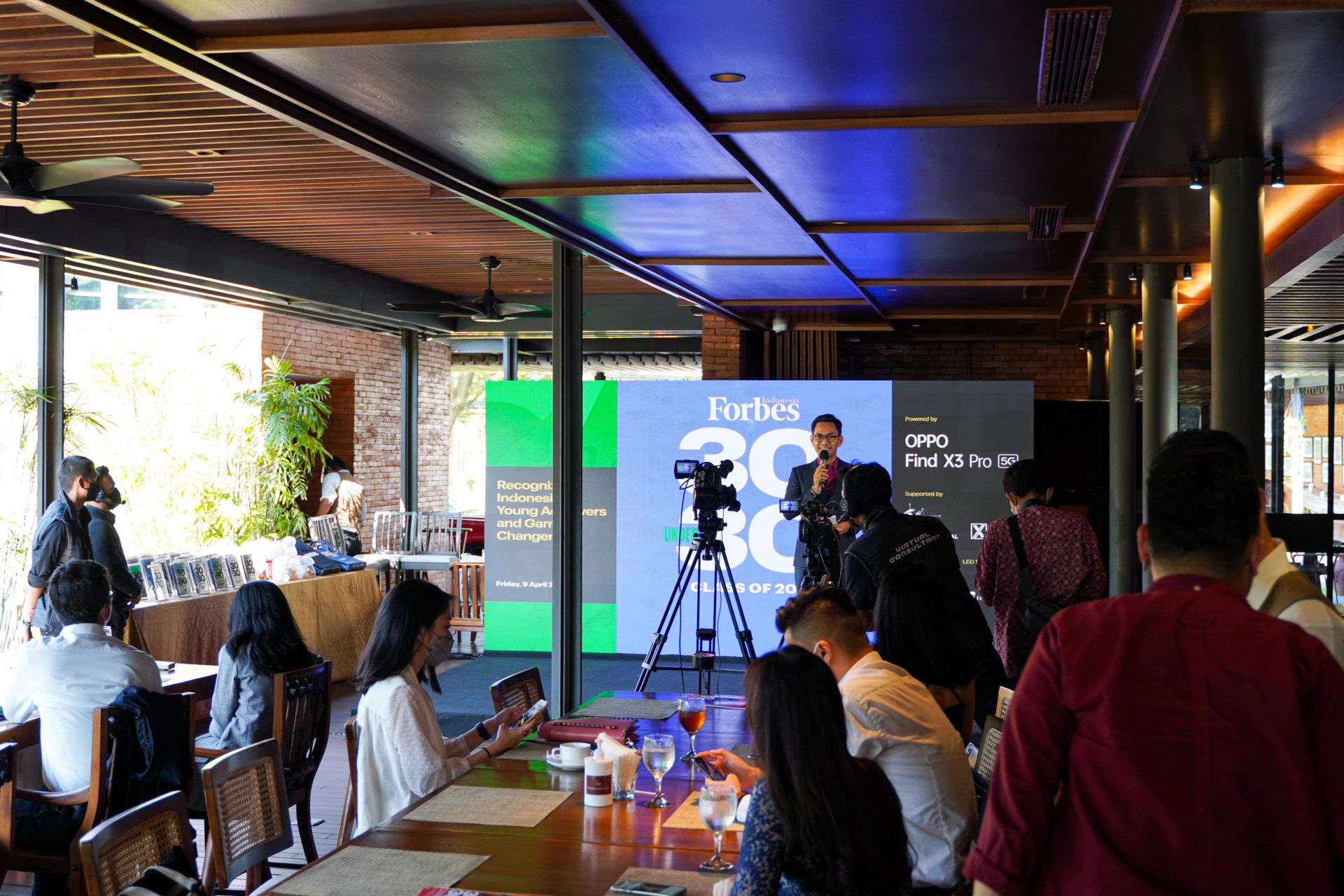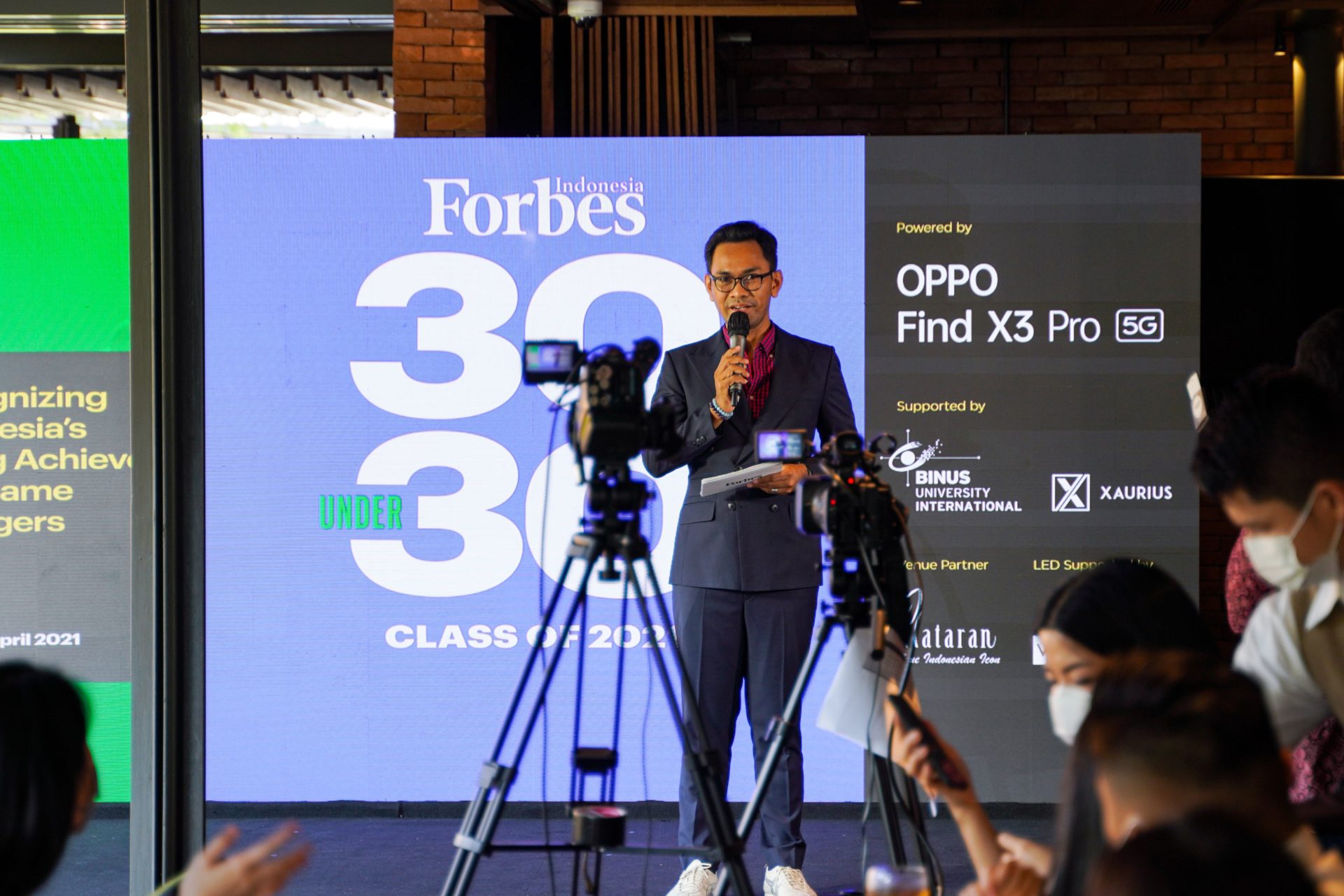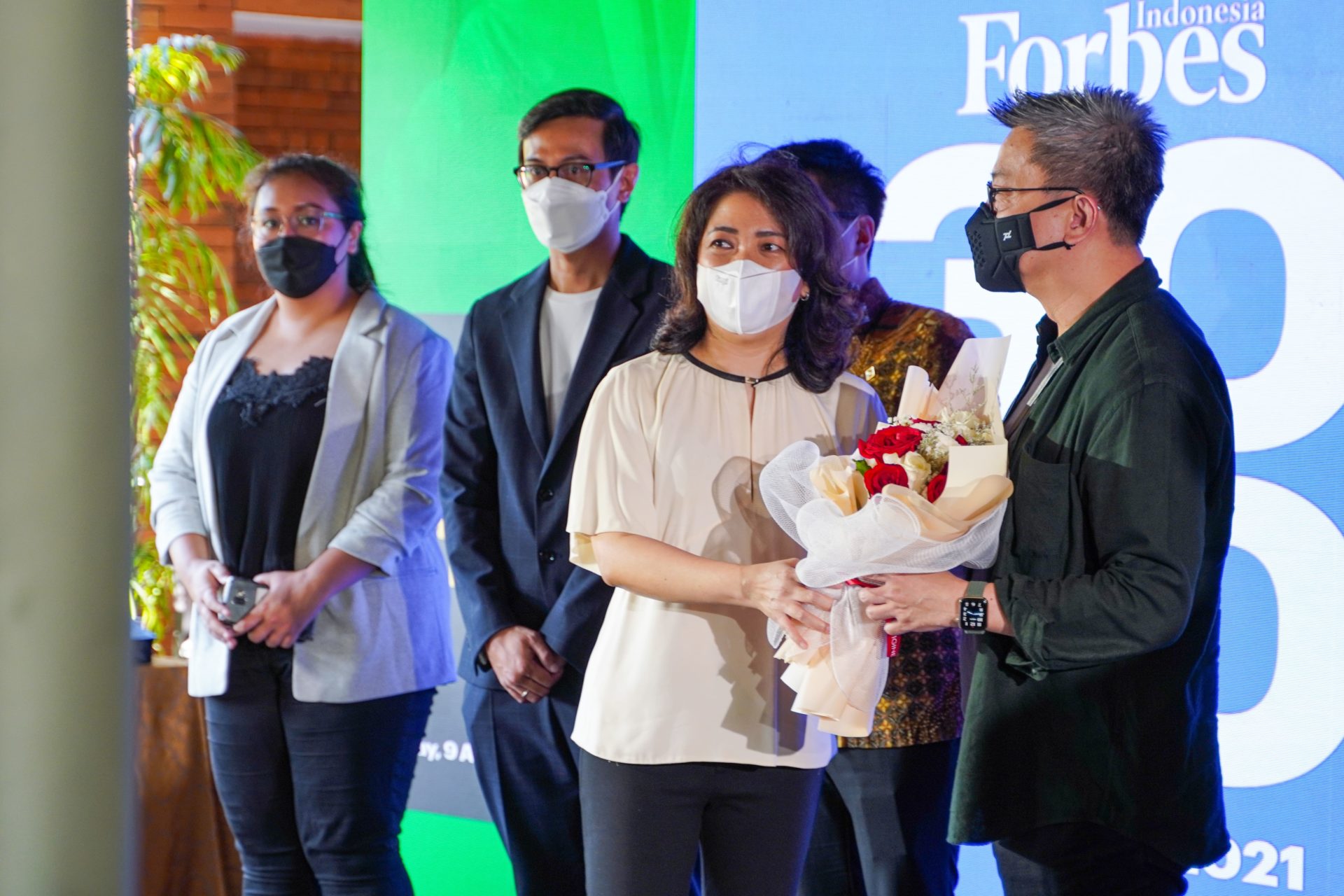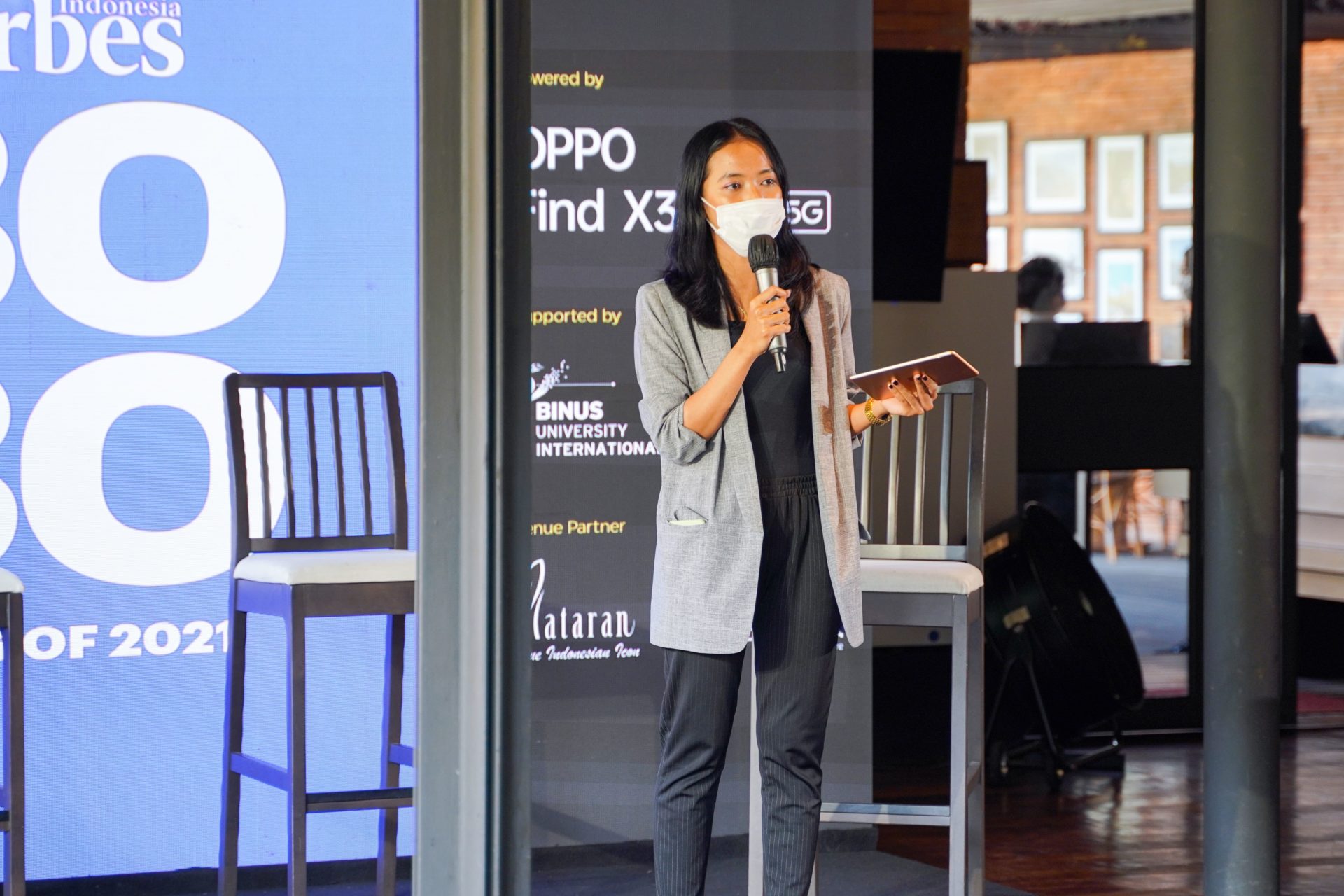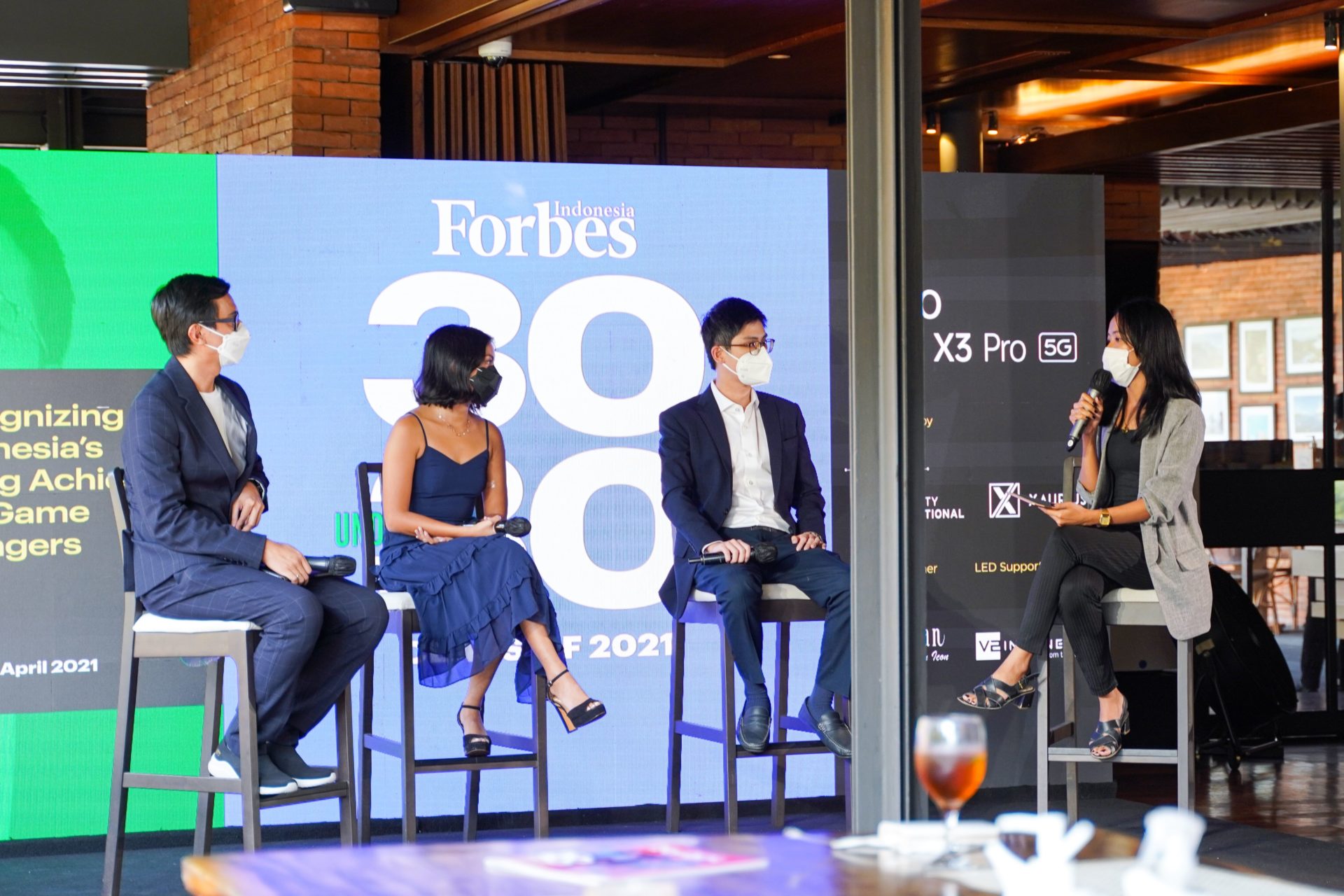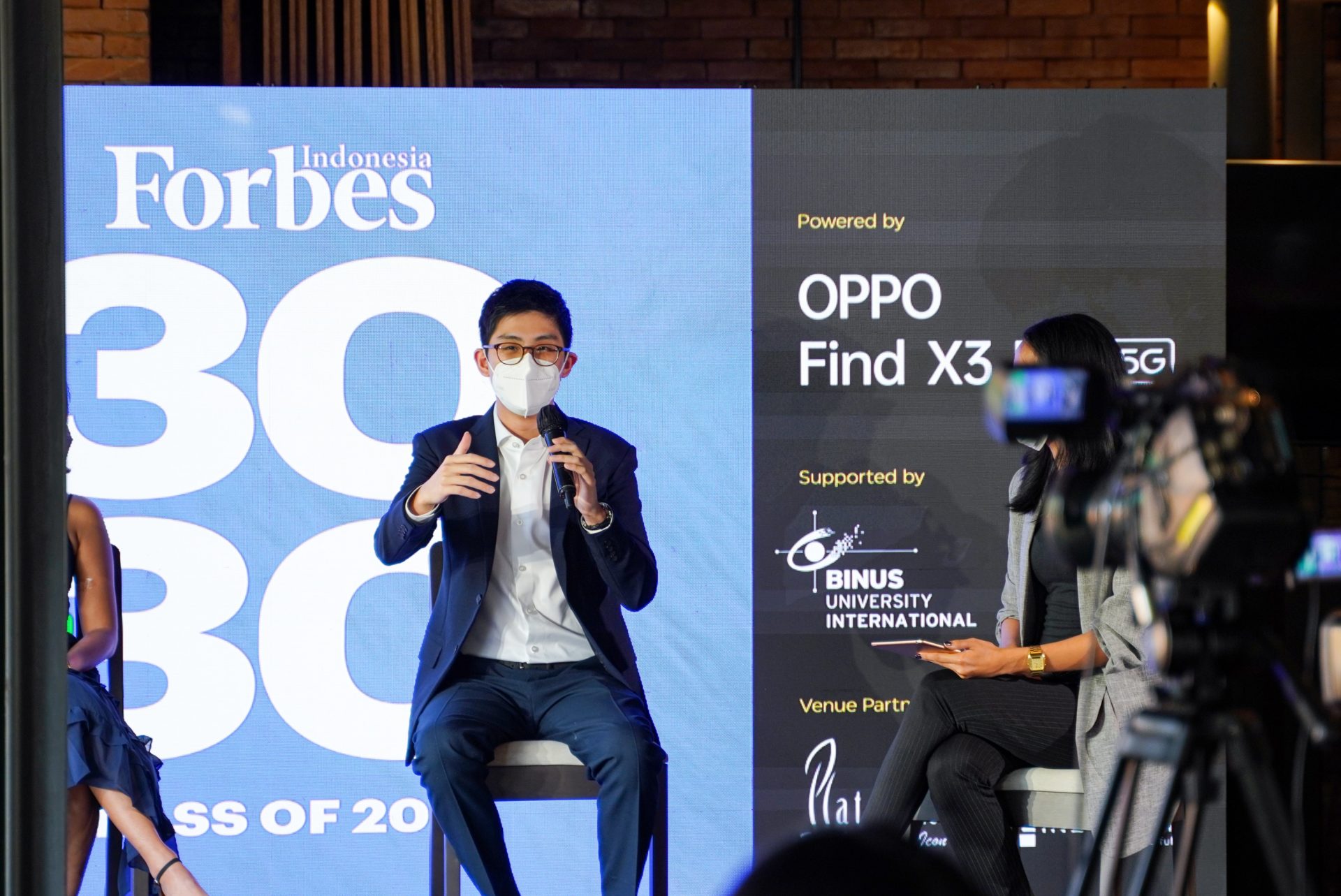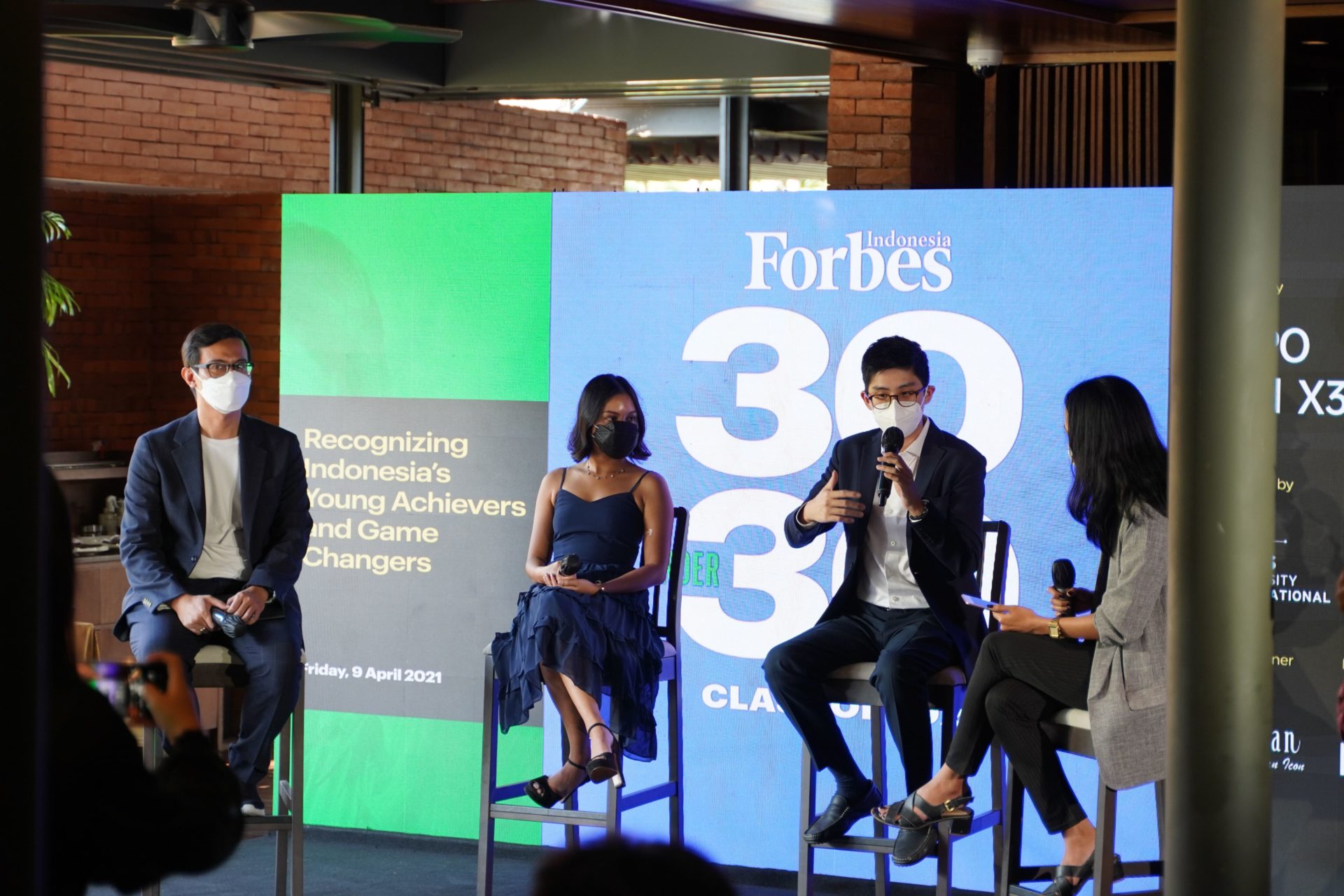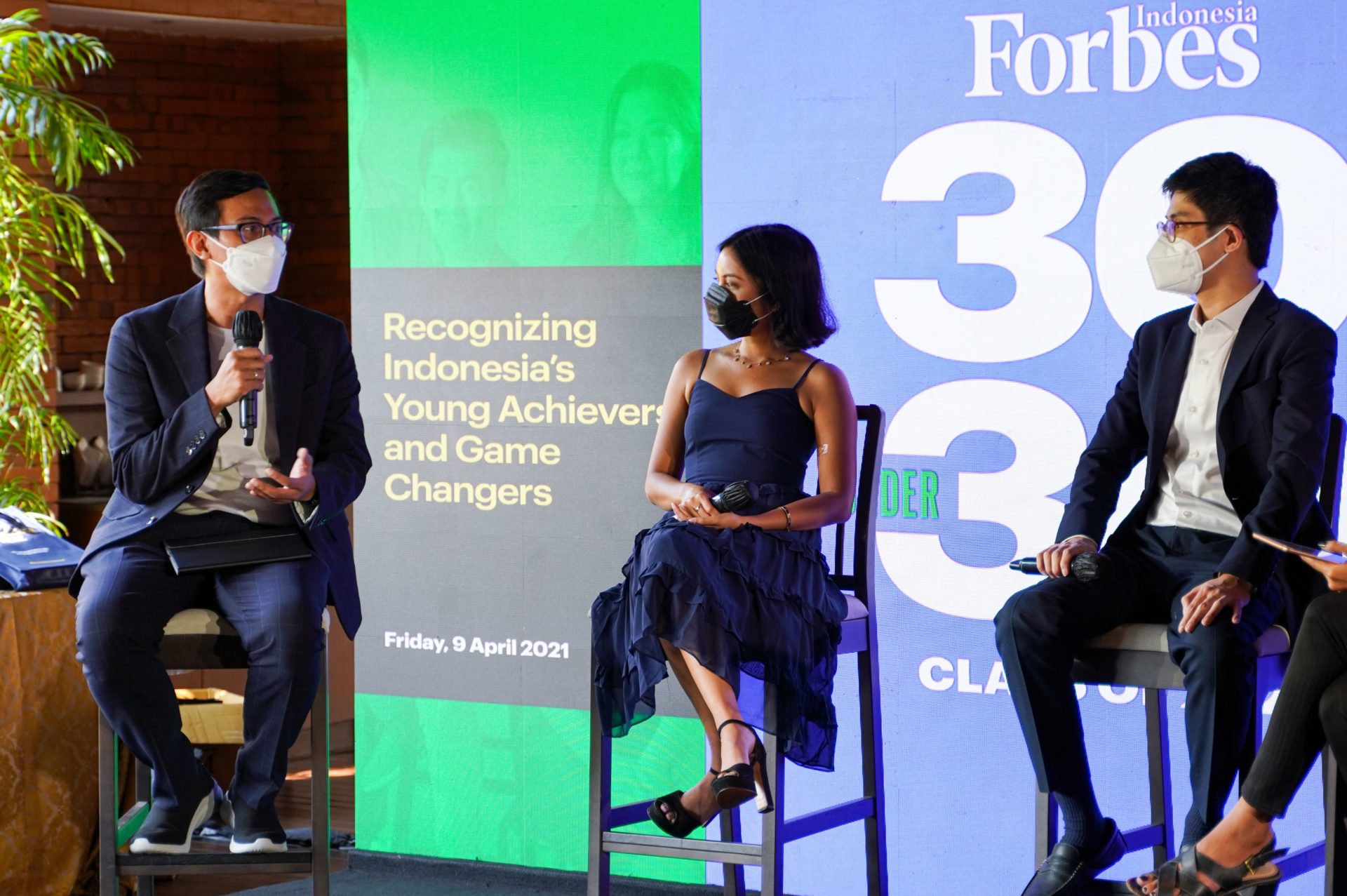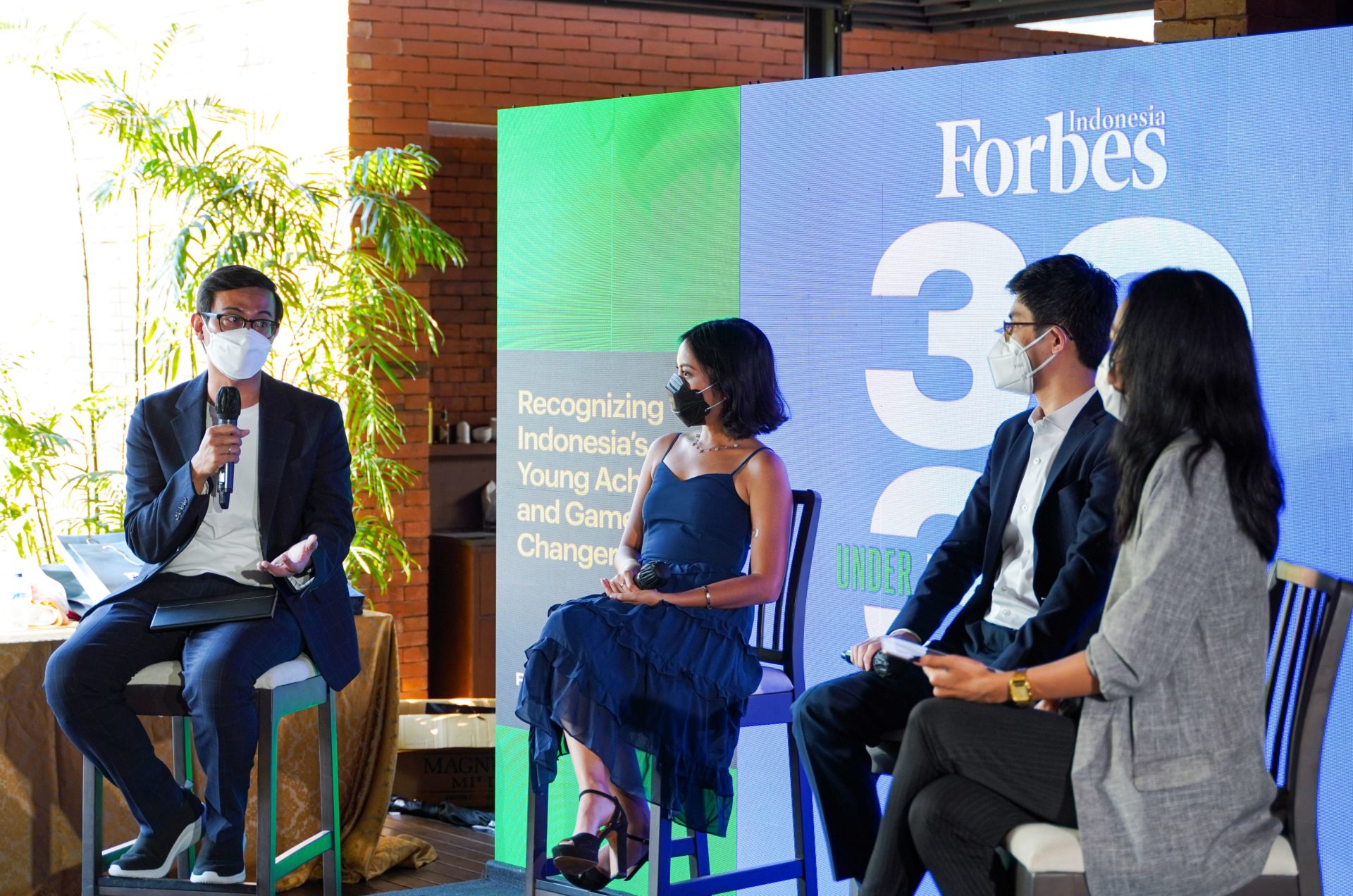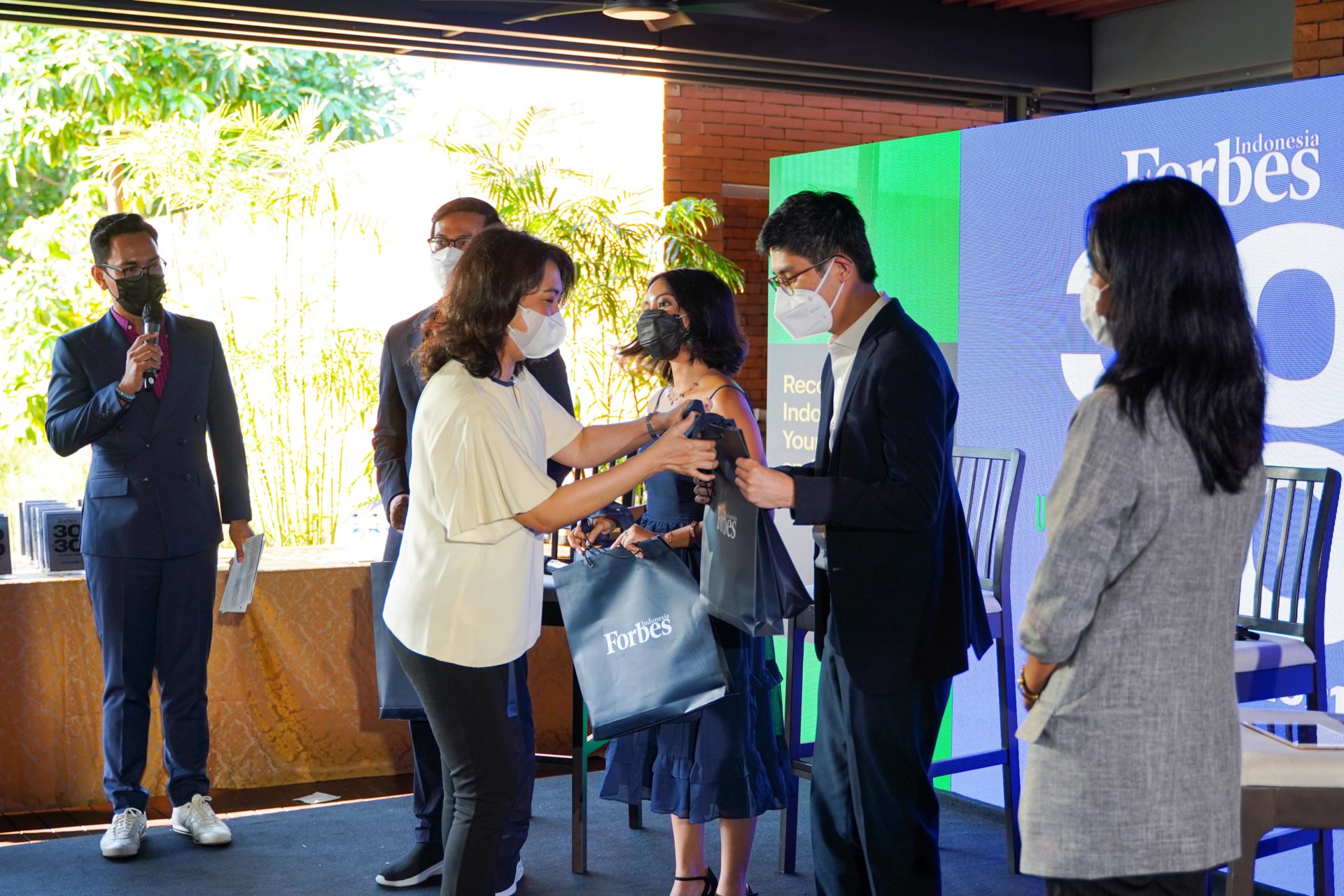Forbes Indonesia collaborated with BINUS University International held the held Forbes Indonesia’s 30 under 30 Class 2021 Awarding Event to celebrate Indonesia’s Young Achievers and Game Changers. Held on Friday, 9 April 2021 at Hutan Kota by Plataran, this event aims to inspire the young generation to get more advanced and get to know the digital world more deeply.
The digital world is currently developing rapidly. As an educational institution that has a duty to educate students regarding digital and technology skills, BINUS University has a big role to play in bringing digital and technology education to Indonesia. In the Forbes 30 Under 30 event, representatives from BINUS University, Gatot Soepriyanto SE, M. Buss., Ph.D (Dean Faculty of Economics & Communication at BINUS International), together with Anderson Sumarli (Co-founder & CEO Ajaib) and Anbita Nadine Siregar ( CEO of Generation Girl) talked together about the development of digital talent in education. The two young talented people have been active in the digital world and are entrepreneurs.
Anderson shared his challenge to build his financial technology company, Ajaib. He stated that there are 3 biggest challenges in building companies, which is to find cybersecurity personnel who are still few in the field, data engineers are also difficult to find and a product manager who has good decision making. Anderson hopes that in the future the world of education can publish new digital talents that can make digitalization even better.
Another amazing young talent, Anbita Nadine Siregar, the CEO of Generation Girl, shared about her community to introduce Science, Technology, Engineering, and Mathematics (STEM) for women. They aim to teach STEM as well as the soft skills needed in the world of digital work as they provide learning programs for women in middle school, high school, and also college students. Generation Girl ensures that women can do problem-solving, full of confidence, and well educated in the digital industry. Even though they are being hit by a pandemic, they are still actively holding online programs and providing facilities for those who want to learn. They also wanted to increase digital literacy in a way that is more exciting and motivating for the girls. For example, they invited L’oreal (beauty company) to talk about how technology takes a role in skincare production. It aims to show how technology is very relevant in any field they wanted to end up in. “It’s important to have a mindset that you continuously a student of life”, she said.
This discussion also connects to Indonesia’s mission as stated by President Joko Widodo, that the target is by 2035, Indonesia will have nine million digital talents. Gatot Soepriyanta said that this target could be achieved if young talents could realize how important digitalization and technology were in the future. To harmonize with this mission, BINUS also participates in the independent learning program as stated by the Minister of Education. This program will free students to study what they like. Because education is not only a theory but also the freedom to learn. Anderson and Nadien also agreed on this independent campus program. They have previously done this when studying abroad and the results have been effective so that they can now finally become successful digital entrepreneurs.
“People are not only robots who always learn one thing, but there can learn a various thing in university,” said Anderson.
As a Dean of the Faculty of Economics and Communication, Gatot stated that BINUS is trying to prepare digital talents in the future. Currently, BINUS students are familiar with digital and are able to adapt well. This has an advantage but also a disadvantage. The disadvantages are students tend to be difficult to focus and impatient. To work this out, lecturers must draw the attention of students and try to keep up with the current developments among students.
“Technology will change rapidly, so we need to be timeless learners to keep adapting to this change,” he concluded.
(VELLIN)


